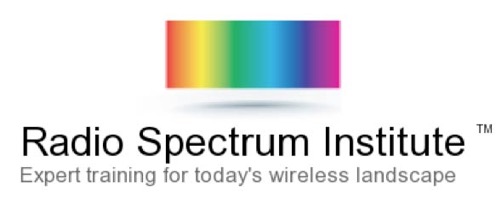Hakone, Japan
MSS in Japan
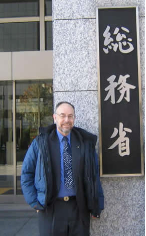
• In 1997-99 he was in the Mike Mansfield Fellowship Program, a US/Japan cooperative agreement that involves 1 year of intensive Japanese language study in the US and then 1 year in Japan working with related agencies and institutions. He was a trainee in Japan at:
• Radio Department of the former Ministry of Posts and Telecommunications (now MIC),
• Association of Radio Industries and Business (ARIB) - the key radio technology standards organization
• Telecommunications Engineering Center (TELEC) - runs the Japanese equipment authorization program on behalf of the ministry
• Office of Representative Naokazu TAKEMOTO, National Diet of Japan (Osaka 15th District)
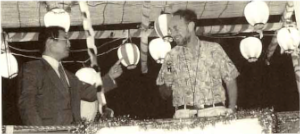
Sharing the podium during internship with Rep. Takemoto
at Tondabayashi City bonodori August 1999
• Final report on participation in the Mansfield Fellowship Program and observations on Japan
• "Regulatory Transparency in Japan: Half Full or Half Empty", Asia Perspectives, Vol. 3, No. 2, p. 20-22 (March 2001)
• Essay on Mansfield Fellowship Experience in Japan from Unique Experiences,Unique Perspectives: Mansfield Fellows and Their Insights on U.S.-Japan Relations (2013)

日本語
Japanese Language Publications
Interview with Rep. Takemoto in Bamboo Journal, Heisei 13, No. 2 (2001). Several topics, although after the Beijing Olympics the section on Osaka's Olympic bid seems rather dated now. (In Japanese and English.)
Essay on Mansfield Fellowship Experience in Japan, published by Mansfield Foundation with other essays.
Interview with Dr. Marcus in 20 January 2003 issue of Nikkei Electronics (In Japanese)
Article on software defined radio and its possible impact on amateur radio, CQ ham radio, January 2004. (In Japanese - Note the article erroneously lists James Miller as the translator, he should be listed as coauthor.)
On Designing a National Communications Regulator for Japan - Presentation at Japan Society for Studies in Journalism and Mass Communications Workshop, Osaka, July 4, 2010 Longer published version (English version; Longer English version for Doshisha University International Institute of American Studies, Kyoto)
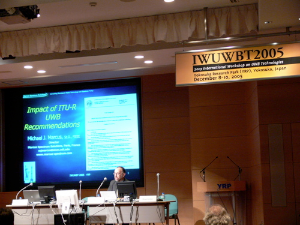
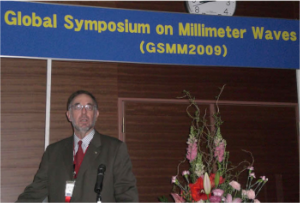
Presentation at YRP UWB conference
December 2005
Keynote speaker at Global Symposium on Millimeter Waves
April 2009 - Tohoku University, Sendai
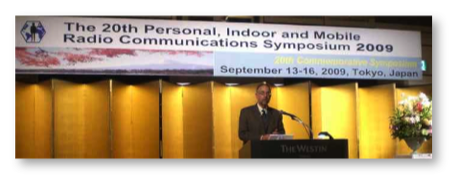
Keynote speaker at Personal, Indoor and Mobile Radio Communications Symposium (PIMRC) 2009
Tokyo
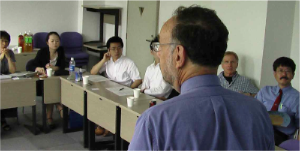
Doshisha University seminar on national communications regulator design, Kyoto, July 2010
Prime Minister's Website
Good entry point to Japanese Government with some similarity to US' firstgov.gov Includes organization chart with links to major agencies
UN Paper on Overview of National Public Administration in Japan
A quick overview of the Japanese government from a somewhat neutral source.
Ministry of Internal Affairs and Communications
Japan's telecom reguator. Site includes links to laws , statistics , and biweekly newsletter. There's a lot of information and some propaganda. While requests for public comment are often announced here, you really have to go to the Japanese side of the site to get details on proposals. (But then again, FCC doesn't have any information in Japanese on its site.)
Information and Communications Statistics Database (MIC)
Include both telecom statistics and links to other MIC and outside English sites.
Radio Use Website
MIC's website for details about radio regulation in Japan.
Japanese Frequency Allocation Table (Charts)
Public comment procedures in Japan
The equivalent of the Administrative Procedures Act in Japan for rulemaking is this cabinet order. Since it is not a law, it is difficult to challenge noncompliance.
US Embassy Tokyo Summary of Current Comment Requests - All fields so few are related to spectrum.
TELEC -This is what I call a "quasigovernmental entity" in Japan. There are many such agencies that perform governmental-like functions but are not formally agencies. TELEC performs many of the equipment authorization functions of the FCC Laboratory.
ARIB - the Association of Radio Industries and Businesses, is also a quasigovernmental organization although it sees itself as more like TIA in the US. Its main activity of interest to foreigners is developing technical standards, which in Japan have much more influence than "voluntary standards" in the US.
U.S. and Japanese Approaches to SDR and Cognitive Radio: Legal and Cultural Factors Expressed in Certification and Technical Rules by James Miller, Mansfield Fellow
A paper with an interesting comparision of US and Japanese approaches to the same techical issue.
"The Short Life of Japanese FCC: Social and Legal Origins of the Radio Regulatory Commission" by Shinji UOZUMI - From 1950-1952 Japan had an FCC-like agency created at the "urging" of the Occupation Administration. It atrophied soon after the return of Japanese sovereignty in 1951.
(This was written in English as a University of Hawaii thesis. A Japanese translation that Prof. Uozumi has concerns about is here. If you would like a Japanese language publication on this issue, Prof. Uozumi suggests you contact him at 関西外大.)
=====
Other Japan Links - In response to many requests, here are some general links in English on Japan, Japanese language study and travel to Japan .
Anime telling the Megumi YOKOTA story from Japanese Government website
(Available in 10 languages)


